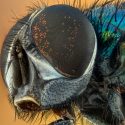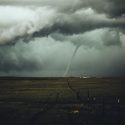After more than a year of self-isolation, you finally get the call. It’s your turn to get the COVID-19 vaccine. You can finally see the light at the end of the tunnel. But a few hours later, you start to feel a little different.
After getting the COVID-19 shot, most people feel fine. But you may be one of the few who experience side effects. The most common are pain, redness and swelling on the arm that received the shot. Tiredness, headache, muscle pain and even fever are also common after-effects. In most cases, they’re a sign that your body is building protection against the virus. But there have been cases of severe allergic reactions to COVID-19 vaccines and even deadly blood clots.
Which symptoms should you pay attention to? Could you suffer anaphylactic shock? And why are the first 15 minutes after your shot so important?
Step 1. Monitor any symptoms
In the United Kingdom and Europe, in a group of 20 million vaccinated people, 25 experienced serious blood clots associated with lowered platelet counts and nine of them died. They all had received the AstraZeneca COVISHIELD vaccine. So the UK and other European countries paused their distribution of the vaccine. But since a review by the European Medicines Agency (EMA) could not determine whether the cases were linked to the vaccine, applications resumed.
The blood clots occurred four to 20 days after vaccination, but they were rare, affecting only one in every 125,000 to one in 1 million people. The symptoms you should be aware of are shortness of breath, pain in the chest, persistent abdominal pain, strong headaches, blurred vision, or swelling in your arms or legs. If you develop any of those symptoms after receiving the vaccine, seek immediate medical attention.
Step 2. Wait 15 minutes
Anaphylaxis is a severe allergic reaction to venom, food or medication. If you have severe allergies, exposure to the vaccine’s allergen could result in a life-threatening reaction. Anaphylaxis can cause anaphylactic shock, which can be fatal if it isn’t treated immediately. The Vaccine Adverse Event Reporting System in the U.S. detected 10 cases of anaphylaxis after administering 4,041,396 first doses of Moderna’s COVID-19 vaccine. In most cases, onset occurred within 15 minutes of vaccination and no anaphylaxis-related deaths were reported. After getting your COVID-19 shot, stay on the site for at least 15 minutes to make sure you do not have any severe allergic reactions.
Step 3. Share your medical history
In April 2021, a 32-year-old woman told the staff at the vaccination center that sometimes she felt slightly unwell after receiving annual flu vaccinations, so they asked her to wait 30 minutes after her Pfizer-BioNTech shot instead of the usual 15. Within a few minutes, her tongue swelled and she became disoriented. They treated her with epinephrine, a drug used to treat severe allergic reactions. But she started to shake uncontrollably, so an ambulance took her to a hospital where they admitted her to intensive care. After two days, her condition improved and she was released. Despite her experience, the woman said that she doesn’t regret getting vaccinated and she encourages everybody else to get theirs.
Step 4. Complete your doses
If you get the mRNA COVID-19 vaccines, such as the Pfizer-BioNTech, Moderna, and AstraZeneca ones, you’ll need two shots to be fully protected. So make sure you get both doses. If you get the viral vector technology Johnson & Johnson’s Janssen COVID-19 vaccine, you’ll only need one dose. Remember, after you are fully vaccinated, it will take time for your body to build protection. You’re fully vaccinated two weeks after you receive your complete vaccine doses.
Step 5. Get the vaccine
Scientists and health experts insist that the COVID-19 vaccines are safe and proven to be effective for the vast majority of people. Although further study is required to understand the long-term impacts of these vaccines on individuals who have severe reactions, these cases are rare and the benefits of these vaccines outweigh the risks.
You survived being vaccinated, and now you’re ready to go back to some sense of normal life. But could you survive another pandemic?
Sources
- “Why Is It So Hard To Investigate The Rare Side Effects Of COVID Vaccines?“. Delft, Diamond Ltd., UK (UKRI), and St. Jude). 2021.Nature.Com.
- “What To Expect At Your Appointment To Get Vaccinated For COVID-19“. 2021. Centers For Disease Control And Prevention.
- “COVID-19 Vaccine Information Sheet “2021. Health.Gov.On.Ca.
- “Anaphylaxis: Causes, Symptoms & Diagnosis“. 2021. Healthline. https://www.healthline.com/health/anaphylaxis.
- “P.E.I. Woman Hospitalized Over ‘Extremely Rare’ COVID-19 Vaccine Allergy Shares Her Story | CBC News“. 2021. CBC.



























